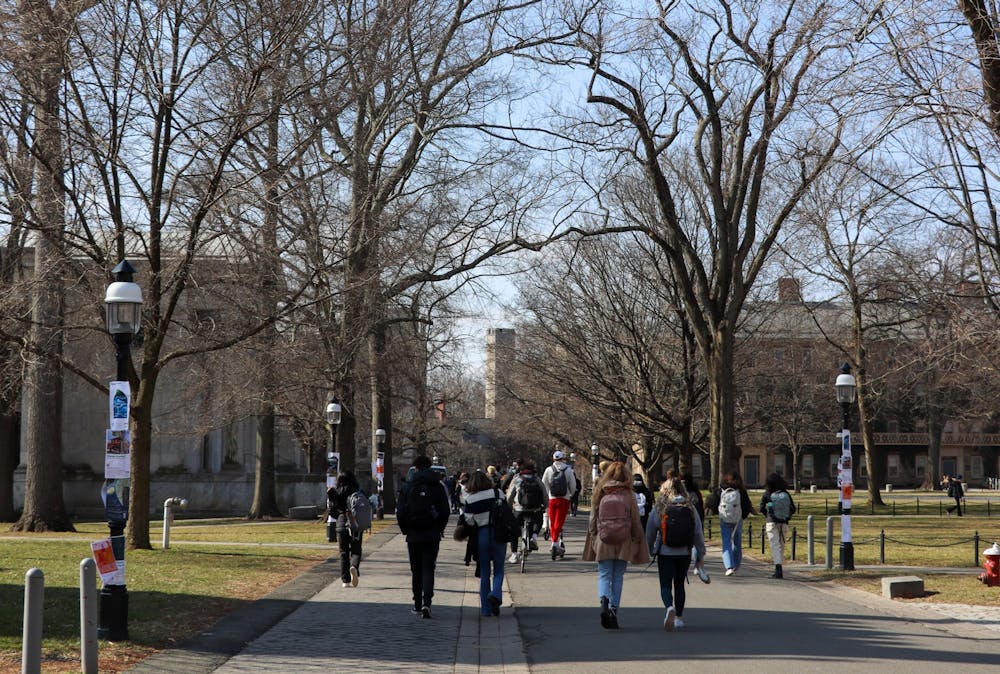At Princeton, a collection of progressive student organizations recently advocated for class-based affirmative action as a potential solution to the Supreme Court in SFFA v. Harvard ruling race-conscious college admissions practices unconstitutional at most all higher education institutions
These groups implore Princeton admissions to “put more weight on socioeconomic status” by exercising “an expansion of class-based affirmative action,” as a means of “preserving diversity in the admissions process.” While they acknowledge that “race matters in the United States,” they emphasize the correlation between race and class, and the legality of income-conscious admissions practices as a justification for class-based affirmative action.
Though noble in its cause, class-based affirmative action is an insufficient means of achieving racial diversity. It will not be effective in maintaining racial diversity on campus. And further, it cannot take American racism writ large seriously. Ultimately, unless we fully reimagine Princeton admissions, no level of preference for an applicant based on identity can fix a fundamentally broken process.
When universities replace race-based affirmative action with alternative admissions practices, many have historically been unable to maintain the same levels of racial diversity, let alone further diversify. This has been true for both the University of Michigan and the University of California system (despite California spending $500 million in outreach to potential applicants of color), both the University of Texas at Austin and Texas A&M (despite the Top 10% Law which grants automatic admission for qualifying Texas residents to all public Texas universities), and countless other higher education institutions. In fact, even agent-based modeling (ABM) of socioeconomic status-based college admissions policies has proven that these alternative practices are far less effective than race-conscious ones at achieving racial diversity.
One reason for this is simply that, in terms of numbers, there are far more white Americans living in poverty than Black, Hispanic, and Indigenous Americans, even if a higher proportion of the latter groups are living in poverty. College enrollment is also higher for white Americans, with enrollment rates continuing to be higher for white 18- to 24-year-olds than Black, Hispanic, and Native American 18- to 24-year-olds, worsening this possible disparity.
Further, class-based affirmative action is a disservice to middle- and upper-class Black families that have, too, been subject to a history of racial discrimination; income does not give Black families the same privileges white families are afforded due to the ever-present wealth gap.
Not only do middle-class Black homeowners own less equity in their homes than white middle-class homeowners, but their children usually attend worse schools than their economically similar white peers. Black and Hispanic adults are also in more financially precarious situations, with 22% of Black and 20% of Hispanic adults moving from the middle-income tier to the lower-income tier in one-year versus just 15% of white adults and 12% of Asian adults making that same movement. At the highest income tier, that gap widens with about half of Black and Hispanic adults moving down to the middle- or lower-income tier from the upper-income tier in one-year versus just a third of white and Asian families doing the same. Importantly, this socioeconomic regression is worse across all races for adults with no bachelor’s degree.
Economic diversity, like racial diversity, is good: It is productive, necessary for addressing disparities like those in public health, and a means of recognizing the greater problem of American aristocracy. But just like race-conscious affirmative action, class-based affirmative action is far too dull to slay what it tries to challenge: a broken admissions system.

Yes, principally Princeton should decenter any preferential admissions criteria that favor wealthy applicants for simply being wealthy in favor of that which advances a renewed realization of service to the nation and the world (I make this very argument here), but a narrow focus on simply increasing the proportion of poor students — like affirmative action aimed to do with Black and brown students — will not yield a holistic admissions process, only a reductionist one.
At least 28% of the incoming class of Princeton students belong to families in the top 10% of income earners in America. 46% of the incoming class is white. Is Princeton diverse enough? No. Is there a magic number for either demographic where Princeton does become diverse enough? Also no. Diversity in college admissions should not be about achieving a percentage, but rather dismantling wealth and race-based acceptance such as removing rigor of secondary school, GPA, standardized testing, and legacy from consideration so that there can be an inherently equitable point of entrance.
Diversity should not rely on admissions officers haphazardly accepting students with marginalized identities, for the sake of them being there. Racial and economic injustice must begin with what criteria decides who can walk through FitzRandolph Gate. Princeton’s next incoming classes could be 90% non-white and 90% FGLI, and it would do nothing to increase fairness unless the criteria by which students are admitted no longer inherently upholds race and class advantages.
Affirmative action, of any kind, is not the panacea progressives promise it will be. Worse, substituting socioeconomic status for race will only further confuse metastasis for remission — racism, and its legacies, should not be collapsed into colorblind economics. Princeton should not admit students because of their socioeconomic status, but because their achievements and potential transcend it. To do so, however, requires a completely anti-racist and anti-classist overhaul of who is considered worthy of college admissions, a feat no university thus far has set out to achieve.

Christofer Robles is a rising junior from Trenton, N.J. He serves as an assistant Opinion Editor and DEIB Committee Chair. Christofer can be reached at cdrobles@princeton.edu or on Instagram @christofer_robles.








